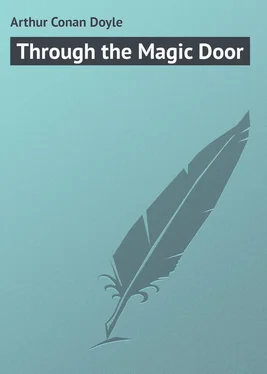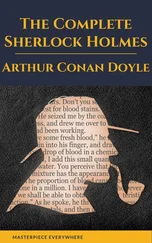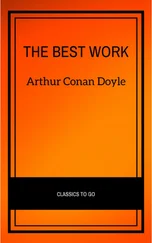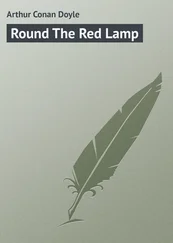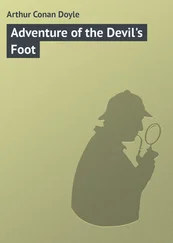Arthur Conan Doyle - Through the Magic Door
Здесь есть возможность читать онлайн «Arthur Conan Doyle - Through the Magic Door» — ознакомительный отрывок электронной книги совершенно бесплатно, а после прочтения отрывка купить полную версию. В некоторых случаях можно слушать аудио, скачать через торрент в формате fb2 и присутствует краткое содержание. Жанр: foreign_prose, на английском языке. Описание произведения, (предисловие) а так же отзывы посетителей доступны на портале библиотеки ЛибКат.
- Название:Through the Magic Door
- Автор:
- Жанр:
- Год:неизвестен
- ISBN:нет данных
- Рейтинг книги:3 / 5. Голосов: 1
-
Избранное:Добавить в избранное
- Отзывы:
-
Ваша оценка:
- 60
- 1
- 2
- 3
- 4
- 5
Through the Magic Door: краткое содержание, описание и аннотация
Предлагаем к чтению аннотацию, описание, краткое содержание или предисловие (зависит от того, что написал сам автор книги «Through the Magic Door»). Если вы не нашли необходимую информацию о книге — напишите в комментариях, мы постараемся отыскать её.
Through the Magic Door — читать онлайн ознакомительный отрывок
Ниже представлен текст книги, разбитый по страницам. Система сохранения места последней прочитанной страницы, позволяет с удобством читать онлайн бесплатно книгу «Through the Magic Door», без необходимости каждый раз заново искать на чём Вы остановились. Поставьте закладку, и сможете в любой момент перейти на страницу, на которой закончили чтение.
Интервал:
Закладка:
And then there was his talk. What was it which gave it such distinction? His clear-cut positiveness upon every subject. But this is a sign of a narrow finality – impossible to the man of sympathy and of imagination, who sees the other side of every question and understands what a little island the greatest human knowledge must be in the ocean of infinite possibilities which surround us. Look at the results. Did ever any single man, the very dullest of the race, stand convicted of so many incredible blunders? It recalls the remark of Bagehot, that if at any time the views of the most learned could be stamped upon the whole human race the result would be to propagate the most absurd errors. He was asked what became of swallows in the winter. Rolling and wheezing, the oracle answered: "Swallows," said he, "certainly sleep all the winter. A number of them conglobulate together by flying round and round, and then all in a heap throw themselves under water and lie in the bed of a river." Boswell gravely dockets the information. However, if I remember right, even so sound a naturalist as White of Selborne had his doubts about the swallows. More wonderful are Johnson's misjudgments of his fellow-authors. There, if anywhere, one would have expected to find a sense of proportion. Yet his conclusions would seem monstrous to a modern taste. "Shakespeare," he said, "never wrote six consecutive good lines." He would only admit two good verses in Gray's exquisite "Elegy written in a Country Churchyard," where it would take a very acid critic to find two bad ones. "Tristram Shandy" would not live. "Hamlet" was gabble. Swift's "Gulliver's Travels" was poor stuff, and he never wrote anything good except "A Tale of a Tub." Voltaire was illiterate. Rousseau was a scoundrel. Deists, like Hume, Priestley, or Gibbon, could not be honest men.
And his political opinions! They sound now like a caricature. I suppose even in those days they were reactionary. "A poor man has no honour." "Charles the Second was a good King." "Governments should turn out of the Civil Service all who were on the other side." "Judges in India should be encouraged to trade." "No country is the richer on account of trade." (I wonder if Adam Smith was in the company when this proposition was laid down!) "A landed proprietor should turn out those tenants who did not vote as he wished." "It is not good for a labourer to have his wages raised." "When the balance of trade is against a country, the margin must be paid in current coin." Those were a few of his convictions.
And then his prejudices! Most of us have some unreasoning aversion. In our more generous moments we are not proud of it. But consider those of Johnson! When they were all eliminated there was not so very much left. He hated Whigs. He disliked Scotsmen. He detested Nonconformists (a young lady who joined them was "an odious wench"). He loathed Americans. So he walked his narrow line, belching fire and fury at everything to the right or the left of it. Macaulay's posthumous admiration is all very well, but had they met in life Macaulay would have contrived to unite under one hat nearly everything that Johnson abominated.
It cannot be said that these prejudices were founded on any strong principle, or that they could not be altered where his own personal interests demanded it. This is one of the weak points of his record. In his dictionary he abused pensions and pensioners as a means by which the State imposed slavery upon hirelings. When he wrote the unfortunate definition a pension must have seemed a most improbable contingency, but when George III., either through policy or charity, offered him one a little later, he made no hesitation in accepting it. One would have liked to feel that the violent expression of his convictions represented a real intensity of feeling, but the facts in this instance seem against it.
He was a great talker – but his talk was more properly a monologue. It was a discursive essay, with perhaps a few marginal notes from his subdued audience. How could one talk on equal terms with a man who could not brook contradiction or even argument upon the most vital questions in life? Would Goldsmith defend his literary views, or Burke his Whiggism, or Gibbon his Deism? There was no common ground of philosophic toleration on which one could stand. If he could not argue he would be rude, or, as Goldsmith put it: "If his pistol missed fire, he would knock you down with the butt end." In the face of that "rhinoceros laugh" there was an end of gentle argument. Napoleon said that all the other kings would say "Ouf!" when they heard he was dead, and so I cannot help thinking that the older men of Johnson's circle must have given a sigh of relief when at last they could speak freely on that which was near their hearts, without the danger of a scene where "Why, no, sir!" was very likely to ripen into "Let us have no more on't!" Certainly one would like to get behind Boswell's account, and to hear a chat between such men as Burke and Reynolds, as to the difference in the freedom and atmosphere of the Club on an evening when the formidable Doctor was not there, as compared to one when he was.
No smallest estimate of his character is fair which does not make due allowance for the terrible experiences of his youth and early middle age. His spirit was as scarred as his face. He was fifty-three when the pension was given him, and up to then his existence had been spent in one constant struggle for the first necessities of life, for the daily meal and the nightly bed. He had seen his comrades of letters die of actual privation. From childhood he had known no happiness. The half blind gawky youth, with dirty linen and twitching limbs, had always, whether in the streets of Lichfield, the quadrangle of Pembroke, or the coffee-houses of London, been an object of mingled pity and amusement. With a proud and sensitive soul, every day of his life must have brought some bitter humiliation. Such an experience must either break a man's spirit or embitter it, and here, no doubt, was the secret of that roughness, that carelessness for the sensibilities of others, which caused Boswell's father to christen him "Ursa Major." If his nature was in any way warped, it must be admitted that terrific forces had gone to the rending of it. His good was innate, his evil the result of a dreadful experience.
And he had some great qualities. Memory was the chief of them. He had read omnivorously, and all that he had read he remembered, not merely in the vague, general way in which we remember what we read, but with every particular of place and date. If it were poetry, he could quote it by the page, Latin or English. Such a memory has its enormous advantage, but it carries with it its corresponding defect. With the mind so crammed with other people's goods, how can you have room for any fresh manufactures of your own? A great memory is, I think, often fatal to originality, in spite of Scott and some other exceptions. The slate must be clear before you put your own writing upon it. When did Johnson ever discover an original thought, when did he ever reach forward into the future, or throw any fresh light upon those enigmas with which mankind is faced? Overloaded with the past, he had space for nothing else. Modern developments of every sort cast no first herald rays upon his mind. He journeyed in France a few years before the greatest cataclysm that the world has ever known, and his mind, arrested by much that was trivial, never once responded to the storm-signals which must surely have been visible around him. We read that an amiable Monsieur Sansterre showed him over his brewery and supplied him with statistics as to his output of beer. It was the same foul-mouthed Sansterre who struck up the drums to drown Louis' voice at the scaffold. The association shows how near the unconscious sage was to the edge of that precipice and how little his learning availed him in discerning it.
Читать дальшеИнтервал:
Закладка:
Похожие книги на «Through the Magic Door»
Представляем Вашему вниманию похожие книги на «Through the Magic Door» списком для выбора. Мы отобрали схожую по названию и смыслу литературу в надежде предоставить читателям больше вариантов отыскать новые, интересные, ещё непрочитанные произведения.
Обсуждение, отзывы о книге «Through the Magic Door» и просто собственные мнения читателей. Оставьте ваши комментарии, напишите, что Вы думаете о произведении, его смысле или главных героях. Укажите что конкретно понравилось, а что нет, и почему Вы так считаете.
